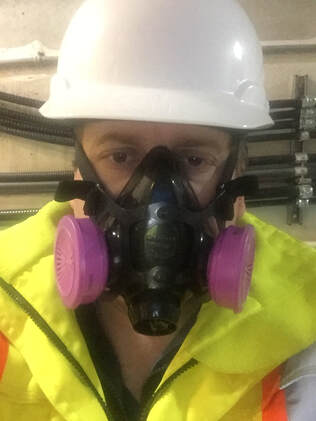|
Michael Pullinger
When you plan to commission a system, have you considered who will oversee the project? If your response sounds similar to “Isn’t that just something my supplier or contractor will do?”, then you're in good company with many of my clients.
For very simple projects, this is a perfectly reasonable approach. But on more complex projects (those with multiple subsystems, or several engineering disciplines), focussing solely on technical expertise, or assuming that no additional oversight is needed can put the project at risk of delays and cost overruns.
Hydro Turbine Delays
I was engaged by the Client as Owner’s Engineer on a hydroelectric project a few years ago. We had a concern that the turbine contractor was falling short of the timelines needed to meet the project’s Commercial Operation Date. We arrived on site one day to see many of their technicians standing around waiting for the lead engineer to troubleshoot a minor valve calibration issue. This was happening because he had not delegated key responsibilities, nor planned for completely foreseeable contingency events so that everyone was kept as busy as possible. He was comfortable troubleshooting valve settings, but was losing track of the big picture of the other subsystems, tasks, and timelines. At this point, my easy-going, mild-mannered Client unleashed weeks of pent up frustrations and stress at the Contractor’s engineer. My Client and I spoke privately and agreed to suspend the commissioning process until we saw a higher level of planning and oversight from the Contractor. We did this despite knowing this would add 2-3 weeks to the commissioning process, but it proved to save time in the long run. In hindsight, we should not have allowed the commissioning process to start in the first place when we had already expressed reservations about the lack of a comprehensive commissioning plan.
Missed Energy Targets
On another project, I was brought in when a building was falling short of their energy target, and I was responsible for trying to find out why. The project team was a mix of competent and experienced contractors and engineers who individually shouldered no blame for missing the energy target. However, the key shortfall was that while the Owner’s energy targets were very clear to all involved, there hadn’t been any mechanism during the commissioning process to ensure that those targets were integrated into the test procedures and sign-offs at each step of the process.
So what do we learn from these two anecdotes?
The commissioning process has to be proactively planned with the big picture in mind, and specific to the objectives set by the Client. Technical specialists are an essential part of the commissioning team. But they aren’t necessarily the best people to oversee the whole process. A technical specialist who can’t speak the interdisciplinary language needed is at risk of allowing some critical pieces to fall through the gaps. The commissioning process needs someone who can bridge the gaps between the various technical specialties and plan the sequence of events in a way that completes the process efficiently, on schedule, and allows for the inevitable unforeseen events.
Lastly, be nice. I have seen how much better a collaborative approach can work. There will be stressful times in any commissioning project, and from experience, I can say that you’re much more likely to get ‘over and above’ performance from those whom you’ve treated as equals.
To give yourself the best chance of success on a complex commissioning project, you need to choose a team that includes technical expertise, but also includes someone who can integrate these specialists, plan diligently, incorporate key objectives, and work effectively with the entire project team. Commissioning Blog Series 1) What the Heck is Commissioning? 2) Commissioning Proceses and Procedures 3) Who Should Commission Your Project? [This post]
0 Comments
Leave a Reply. |
Categories
All
Archives
May 2024
|
Site powered by Weebly. Managed by Web Hosting Canada





 RSS Feed
RSS Feed